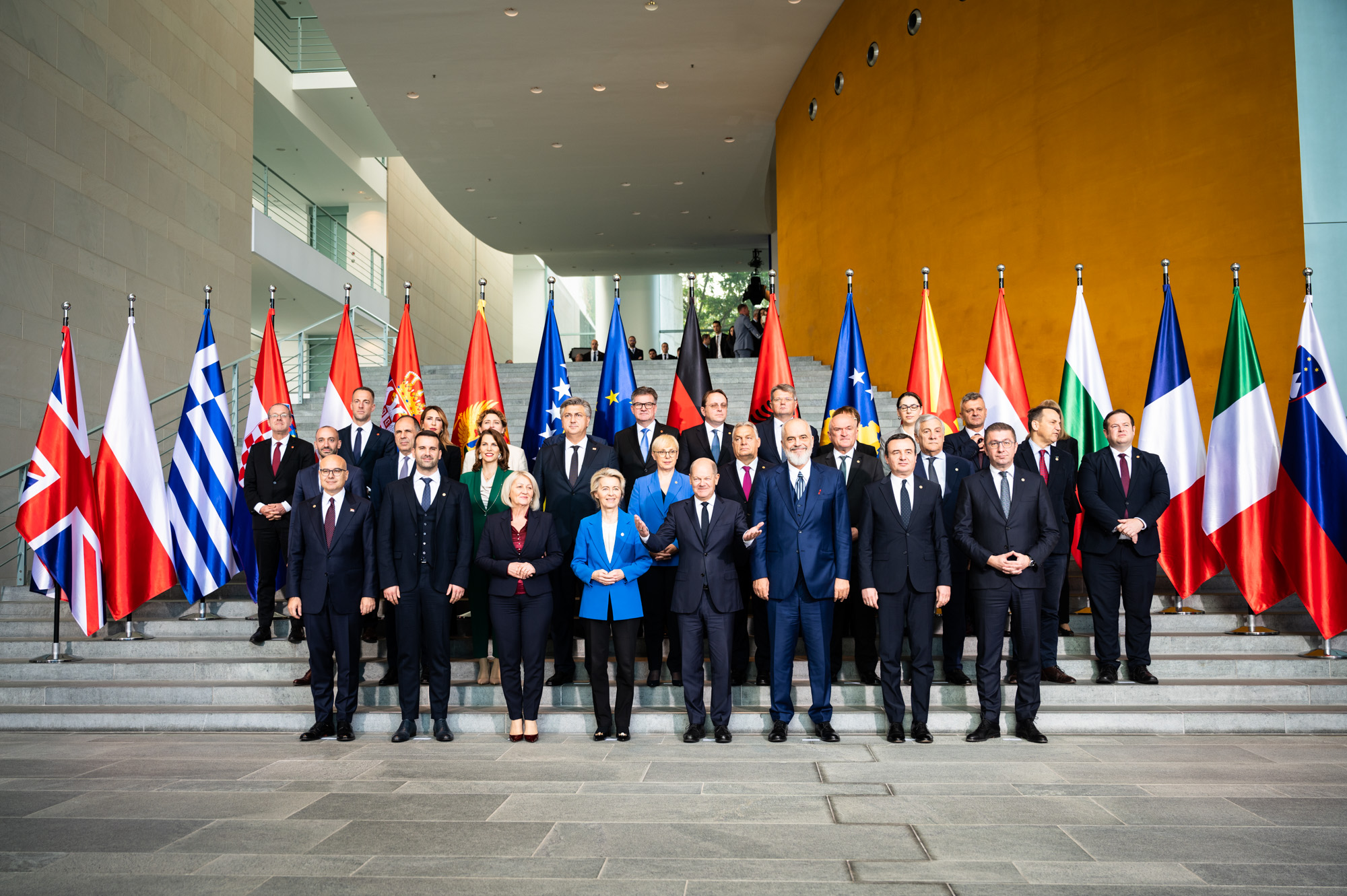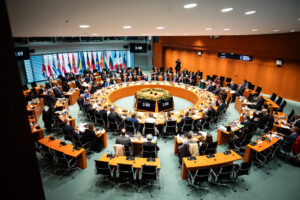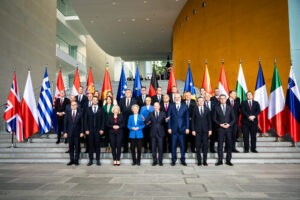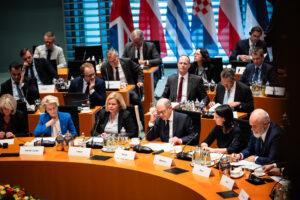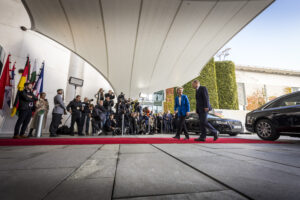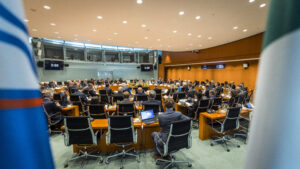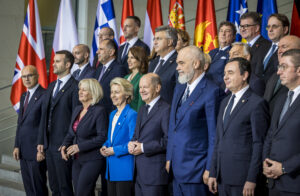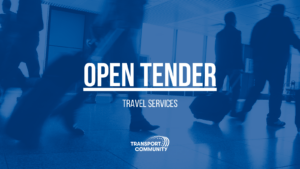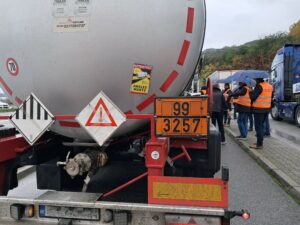WESTERN BALKANS/GERMANY – The Western Balkans Summit of the Berlin Process concluded with the Leaders’ Meeting on Monday, 14 October 2024. During the meeting, the Director of the Permanent Secretariat of the Transport Community, Mr Matej Zakonjšek, addressed the Western Balkan and European leaders. This year’s edition also marks the 10th anniversary of the initiative.
“The next five years are crucial for the EU integration of the Western Balkans, including the integration of transport. As we progress with the EU integration, we will see more trade, and more trade means more transport. But we need sustainable, green, and modern transport. We need to see more rail and fewer tucks to achieve the goals set in the Green Agenda and the Growth Plan for the Western Balkans. That is why we need a collective effort to develop a sustainable transport network based on TEN-T standards and reforms, including modern railways and (re)connecting major cities in the region between themselves and with the neighbouring EU member states,” he pointed out.
On the other hand, the Chair’s Conclusion’s, an official document of the Summit published by the German Federal Government, outlines the key points of the meeting. As stated by the government spokesperson, the Conclusion’s section “Connectivity and Transport” reads the following:
- The participants welcomed the results of the High-Level Green Mobility Summit, organised in June 2024 in Sarajevo, Bosnia and Herzegovina, by the Transport Community Permanent Secretariat and the German Federal Ministry for Economic Cooperation and Development. The summit endorsed the Declaration for Green Mobility of South-East European Parties and observing participants, including Clean Bus and Clean Fleet Declaration and Cycling Declaration. Additionally, the summit took into consideration the new revision of the Trans-European Transport Network (TEN-T) Regulation.
- The participants acknowledged the initiative for Green Lanes linking the EU and the Western Balkans, taken jointly by the Transport Community’s and CEFTA’s Secretariats, and supported by the European Commission. The initiative is following the success of the Green Lanes in the Western Balkans, which has had significant economic benefits and proven invaluable in enabling facilitation of export within CEFTA/Western Balkans region.
- The Summit emphasised the need for regional coordination, multilevel governance, and financial support to implement green mobility initiatives. Participants recognised the importance of adapting mobility infrastructure to climate change. These recommendations aim to enhance sustainable transport in the Western Balkans, leveraging the Berlin Process for regional cooperation and integration.
To read the full document, please click here.
Photo: German Federal Government (Bundesregierung) / Steins, Sandra and Koehler, Thomas

